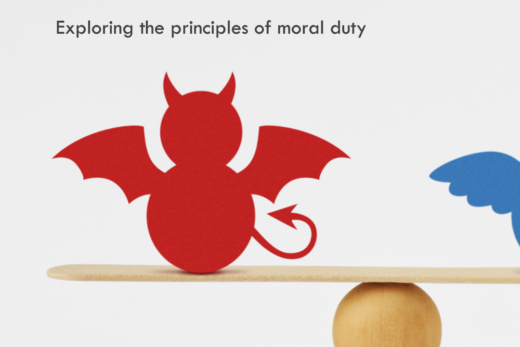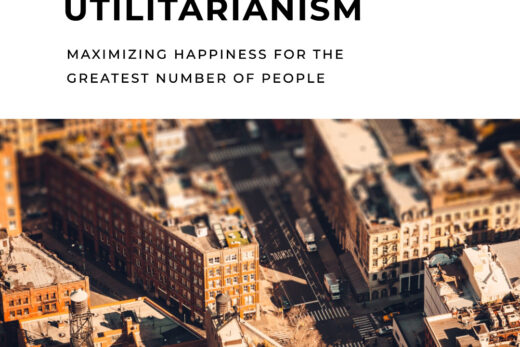Consequentialism, in the essence of ethical theory comparison, is an ethical framework proposing that the morality of an action hinges on its ethical consequences. From the consequentialist perspective, an action is perceived as “good” if it promotes more benefit than harm, whereas an action that instigates more harm than benefit is deemed “bad”.
This basic principle, however, ignites deep reflection, especially when applied to intricate, real-world situations—ethical dilemmas—which we’ll delve into throughout this article. We’ll also decode various strands of consequentialism, demarcating act consequentialism, rule consequentialism, and utilitarianism, among others. To ensure balanced exploration, we’ll not only underline the merits of consequentialism but also spotlight its critiques.
Bentham and the Birth of Consequentialism
Consequentialism is frequently linked with the works of English philosopher Jeremy Bentham and his happiness-centered approach—Bentham and Mill’s philosophy. Bentham argued that ethical actions are those that stimulate the most possible happiness and the least possible pain. In his theory, every individual’s pleasure or pain counts equally, establishing a fundamentally egalitarian philosophy.
Bentham’s viewpoint aligns neatly with act consequentialism, a form of consequentialism often compared to utilitarianism, which contends that an action is ethical if and only if it brings about more positive outcomes than negative ones. Hence, an act consequentialist in the process of outcome-based decision making would ponder over this core question.
Mill’s Rule Utilitarianism
Nonetheless, John Stuart Mill, a protégé of Bentham’s, suggested an alternative angle. Mill was convinced that society would find it challenging to function if it had to calculate the specific costs and benefits—cost-benefit analysis—of every action. Instead, Mill introduced rule utilitarianism, positing that we create a set of rules to maximize happiness over time and apply these universally.
Challenges of Consequentialism
Despite its adaptability to different contexts, consequentialism encounters its share of challenges. Measuring different benefits and determining which holds superior moral outcomes can be problematic. It also incurs criticism for its ‘ends justify the means’ logic. The mindset, which focuses solely on desirable outcomes, can seem to justify causing harm to some to benefit others, raising ethical questions about the ethical implications of our actions.
At the heart of consequentialist ethics lies the quandary: Is it justifiable to allow some people to suffer so more people can thrive? It pushes us to probe deeply into the implications of our actions, underscoring the interconnectedness of our decisions and their outcomes—a web of cause and effect shaping our moral life fabric. However, there are other ethical frameworks that challenge this view, such as Deontology. In a deontological perspective, the rightness of an action is not solely determined by its outcome. Explore more about this perspective in our article on Deontology.
In Conclusion
In conclusion, consequentialism, with its emphasis on outcomes, reaffirms that our actions carry weight. Each decision we make triggers a ripple of consequences, affecting not only our lives but also the world around us in ways we might never fully grasp.
Frequently Asked Questions
What are the advantages and disadvantages of consequentialism?
The primary advantage of consequentialism is its focus on outcomes, making it a practical tool for decision-making. It encourages us to think about the wider effects of our actions, prompting us to aim for the greatest good. However, it also has its drawbacks. Consequentialism can lead to scenarios where the ends justify the means, potentially permitting harmful actions if they lead to beneficial results. It also raises the question of how we measure and compare different outcomes, which can be a complex task.
How does consequentialism differ from deontology?
Consequentialism and deontology are both important ethical theories, but they differ fundamentally in their approach. While consequentialism focuses on the outcomes of an action to determine its morality, deontology is more concerned with the nature of the action itself. Deontological ethics assert that certain actions are intrinsically right or wrong, regardless of their outcomes.
How does consequentialism apply to everyday life?
Consequentialism applies to everyday life in numerous ways. It can shape our decision-making process, prompting us to consider the potential outcomes of our actions. From deciding to donate to a charity because it could positively impact many lives, to choosing not to exceed speed limits because it minimizes the risk of accidents, consequentialist thinking helps us navigate the moral complexities of our day-to-day actions.




